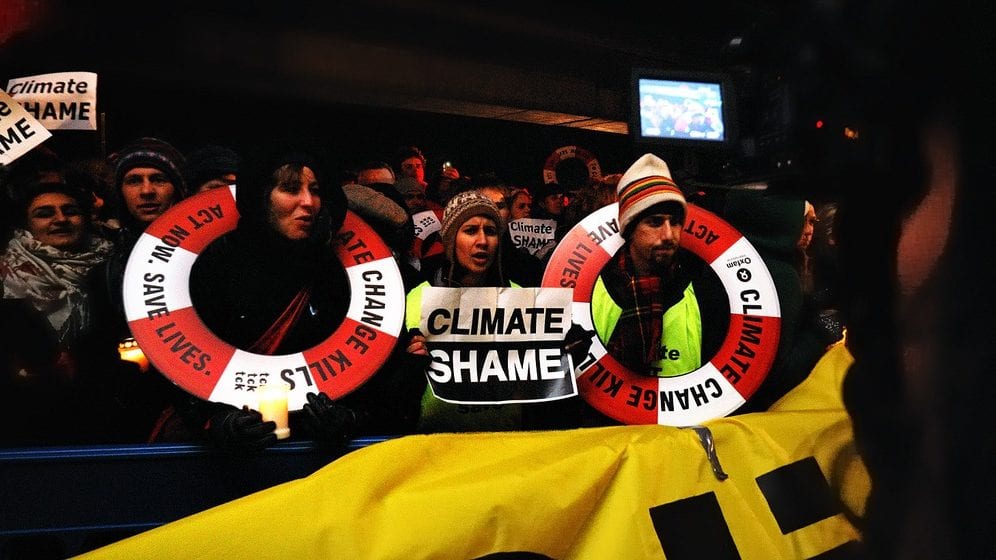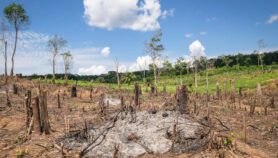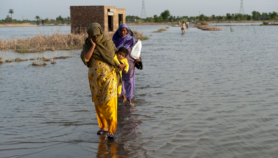By: Crispin Maslog
Send to a friend
The details you provide on this page will not be used to send unsolicited email, and will not be sold to a 3rd party. See privacy policy.
Debate on climate change is heating up again as scientists in the Intergovernmental Panel on Climate Change (IPCC) meet from 23-26 September in Stockholm, Sweden, to finalise a landmark UN report on climate change and recommend what actions the world should take.
The report is expected to outline more scientific evidence of climate change and note that greenhouse gas emissions continue to increase. The IPCC draft report would say that it is "extremely likely" that humans are mainly responsible for global warming since the 1950s, an upgrade from "very likely" in the last main IPCC report published in 2007.
But the report is also expected to say that the global warming trend slowed in the last 15 years — from 1998 to 2012 — to about half the average rate since 1951. And this piece of information, contained in advance copies of the document obtained by the Associated Press, might be used by climate sceptics to again question the majority opinion of scientists that global warming is occurring. [1]
However, the expected controversy will be spiked by claims that some governments have asked the scientists to alter their report. Four countries — Belgium, Germany, Hungary and the United States — have reportedly told UN climate scientists to amend their report so it would not "provide ammunition for climate sceptics". [2]
Germany is said to have asked for the reference to the warming slowdown to be omitted; the United States reportedly urged for the inclusion of the "leading hypothesis" that the reduction in warming is linked to more heat being transferred to the deep ocean; and Belgium objected to using 1998 as a starting year for any comparison because that year was exceptionally warm.
Welcome debate
In any case, the debate is welcome because it will highlight once again the grave threat to our environment that most scientists have now agreed exists, but which climate sceptics still question.
The slowing of the warming trend from 1998 to 2012 that the report is set to cite is really over too short a period to be significant. It is just a blip in the big picture: the warming trend from 1901 to the present. But scientists need to convincingly explain why there is a decline in the warming trend.
Unfortunately, a more-detailed explanation for the slowing is not expected to be in the final report. This is why government officials from the four countries have called on the IPCC to include some scientific explanation.
While the debate on warming continues, however, enlightened governments must not wait to see who wins it. Climate is changing. It affects rainfall patterns, storms and droughts, growing seasons, humidity and sea level. The IPCC has predicted that sea levels could rise from 18 centimetres to 58 centimetres by the year 2100, threatening low-lying areas especially in the South Pacific. The IPCC meeting this week is expected to add more evidence to bolster this prediction.
In the Philippines and elsewhere in Southeast Asia, farmers who depend on the rains to water their crops are now unsure when to plant or harvest.
Globally, older people have noticed that typhoons and hurricanes have come more frequently, are more destructive and no longer only arrive during the storm season. Last year alone, two intense storms devastated both sides of the planet: Hurricane Sandy, which brought unprecedented flooding and snow to the east coast of the United States in October and November, and super typhoon Bopha, which wreaked havoc in the southern Philippines the following month.
Let action begin
Global warming must be mitigated now. The world's superpowers — China, Europe, India, Japan and the United States — must lead the way in finding substitutes for their gasoline and other fossil fuels to run their industries.
While the leading industrial nations must play the major role in this effort, the smaller nations of South-East Asia and the islands in the Pacific can shame the big countries into action by political action and example.
In a previous column, I noted that the Association of Southeast Asian Nations (ASEAN) had endorsed climate change declarations, most recently after the 2007 Bali and 2009 Copenhagen UN conferences on climate change. But the endorsements had no hint of urgency.
I reiterate my proposal for an ASEAN-Pacific summit to make specific and concrete commitments to reduce carbon emissions in the region. The region has to put climate change at the top of its agenda right away.
Let the debates continue, but let the actions to stop global warming begin now.
Crispin Maslog is a Manila-based consultant for the Asian Institute of Journalism and Communication. A former journalist, professor and environmental activist, he worked for the Press Foundation of Asia and the International Rice Research Institute.
This article has been produced by SciDev.Net's South-East Asia & Pacific desk.
References
[1] CBSnews.com and Associated Press Controversy over U.N. report on climate change as warming appears to slow (www.wtsp.com, 20 September 2013)
[2] Sky News Climate Change: Scientists Told To Fudge Report (Sky News, 20 September 2013)
[3] IPCC Climate Change 2007: The Physical Science Basis (IPCC, 2007)














